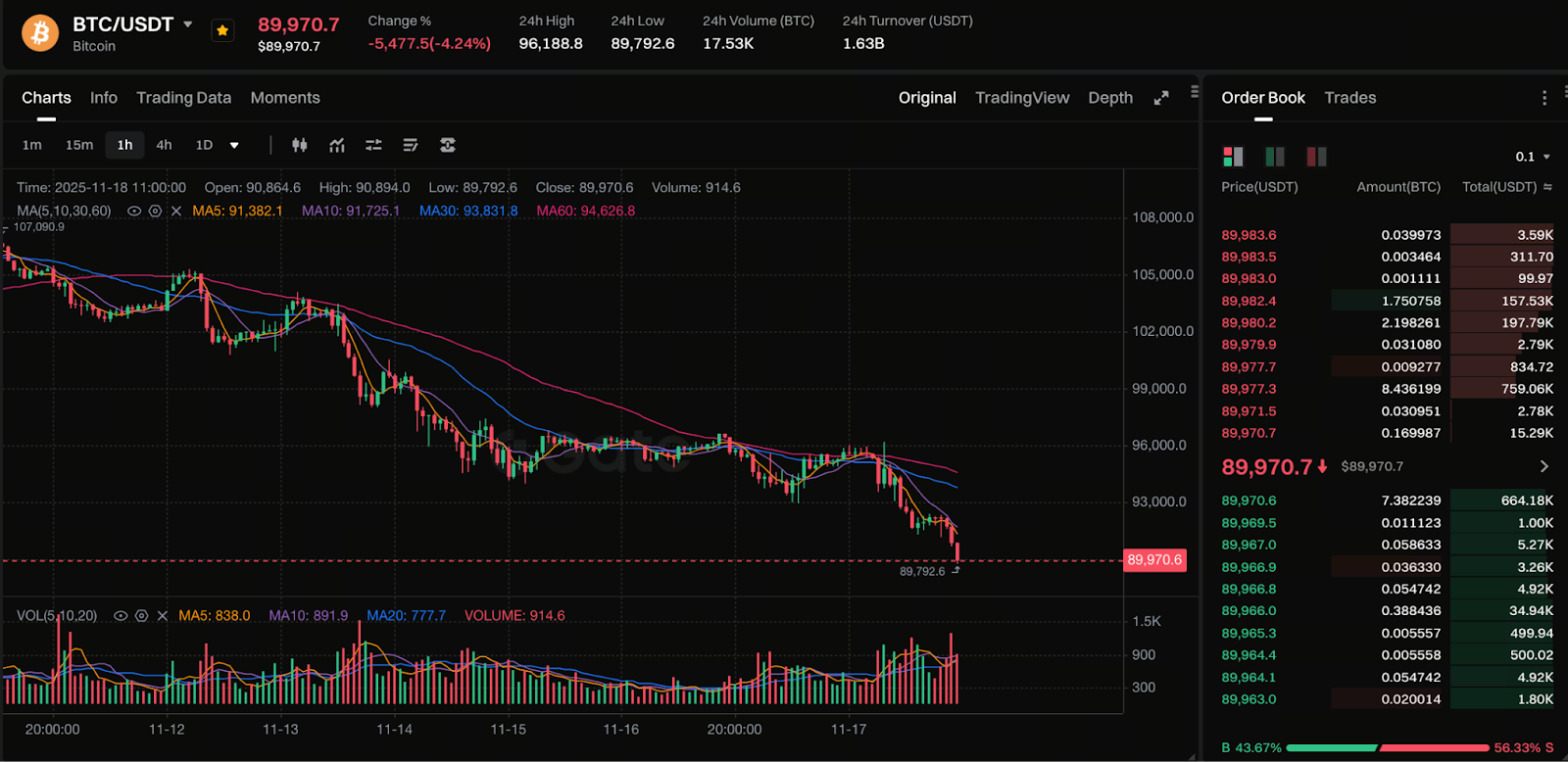Japan’s 2026 Major Crypto Tax Cut: From 55% to 20%, Unlocking New Market Opportunities
Background and Rationale for Japanese Tax Reform

Image: https://www.gate.com/trade/BTC_USDT
Japan has been advancing regulatory innovation in the cryptocurrency sector over the past several years. According to the latest reports, the Financial Services Agency (FSA) is planning significant reforms to directly regulate select crypto assets and revise the tax framework. The heart of these changes, slated for 2026, is a switch from the current progressive capital gains tax—capped at 55%—to a flat 20% rate for crypto assets. This move reflects Japan’s commitment to supporting a stable and broader crypto market by lowering taxes and simplifying the tax system.
Current Crypto Taxation: Why Is It As High As 55%?
At present, Japan classifies cryptocurrency gains as “ordinary income.” Depending on an individual’s total income, these gains are subject to progressive taxation, which, when combined with local resident taxes, can reach a maximum rate of 55%. This steep tax rate discourages active traders and investors and can deter them from realizing gains.
Highlights of the New Policy: 20% Flat Tax + Crypto Classified as Financial Products
According to the FSA’s proposal, roughly 105 crypto assets—including major tokens like Bitcoin and Ethereum—will be redefined as financial products and regulated under the Financial Instruments and Exchange Act. Crypto asset gains will be treated as capital gains and taxed at a uniform 20% rate, aligning with taxes on stocks and other financial instruments. The plan also introduces loss carryforward, enabling investors to offset future gains with prior years’ losses, which is not available under the current system. Another key update is stricter market compliance: Exchanges must disclose more information, including issuer’s identity, technical infrastructure, and volatility risks, and will face new restrictions on insider trading.
Potential Impact: Individual Investors vs. Institutional Players
- Individual Investors: The substantial tax cut could encourage individuals to return to or increase their crypto investments. Many who previously held coins and hesitated to realize gains due to high taxes may now rethink their trading approaches.
- Institutional Capital: With crypto assets reclassified as financial products, banks, insurers, and other financial institutions will have opportunities to participate in the crypto market through their securities subsidiaries.
- Exchanges and Product Innovation: A clearer legal framework and flat tax rate lay the groundwork for innovative products, such as crypto ETFs (exchange-traded funds).
Risks and Controversies: Legislation and Market Stability
While the FSA’s proposal is ambitious, it must pass through parliamentary legislation to take effect. The market could experience increased volatility. Large-scale realizing of gains ahead of or following the tax overhaul may trigger selling pressure. Regulating crypto as financial products may also increase compliance costs. Some critics argue that the 20% flat tax, though much lower than 55%, is still higher than rates in certain low-tax or tax-free jurisdictions, potentially dampening international investor interest.
Japan Poised to Become a More Competitive Crypto Hub
Tax reform and regulatory enhancements have strengthened Japan’s position in the global crypto industry. By lowering taxes and clarifying financial market regulations, Japan may attract more domestic and international investors. This approach aligns with Japan’s strategy to promote a cashless economy and encourage Web3 development. If the reforms progress smoothly, Japan could emerge as a key hub for the convergence of crypto assets and traditional finance.
How Should Investors Prepare?
- Monitor Regulatory Developments: Closely follow FSA and parliamentary updates on relevant legislation.
- Tax Planning: Strategize profit realization before and after the reform and assess opportunities for loss carryforward.
- Asset Classification: Identify which crypto assets are included in the FSA’s proposed list of 105 types.
- Exchange Selection: Favor local trading platforms with robust compliance and transparent disclosures.
- Risk Management: While the outlook is positive, maintain vigilance regarding macroeconomic policy changes, market volatility, and tax compliance risks.
Related Articles

Pi Coin Transaction Guide: How to Transfer to Gate.io

Flare Crypto Explained: What Is Flare Network and Why It Matters in 2025

How to Use a Crypto Whale Tracker: Top Tool Recommendation for 2025 to Follow Whale Moves

2025 BTC Price Prediction: BTC Trend Forecast Based on Technical and Macroeconomic Data

What is N2: An AI-Driven Layer 2 Solution
